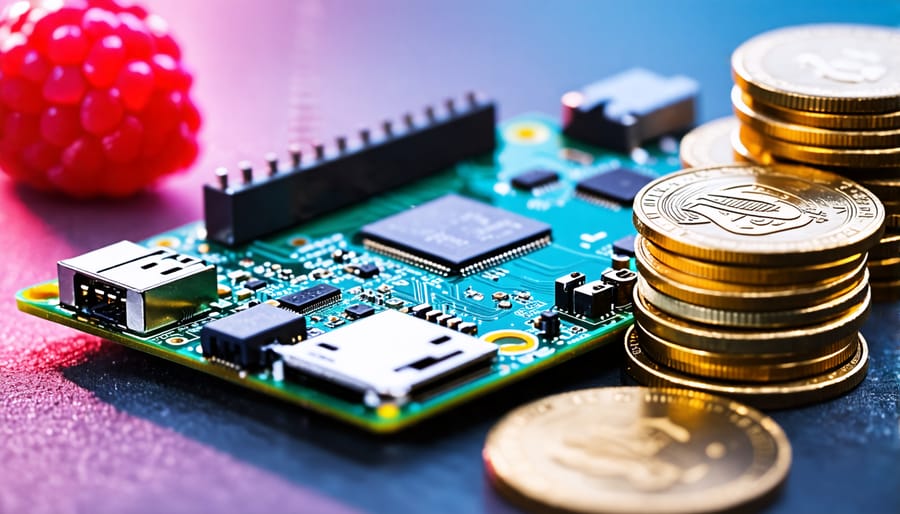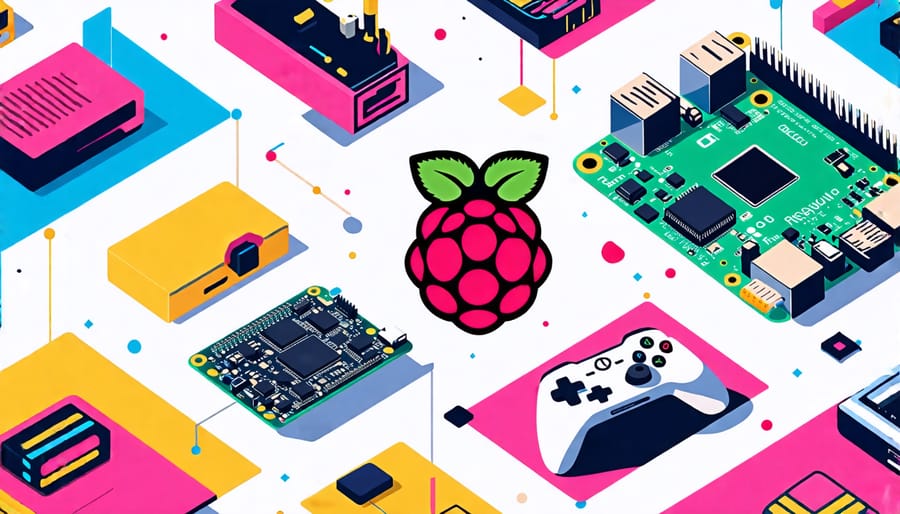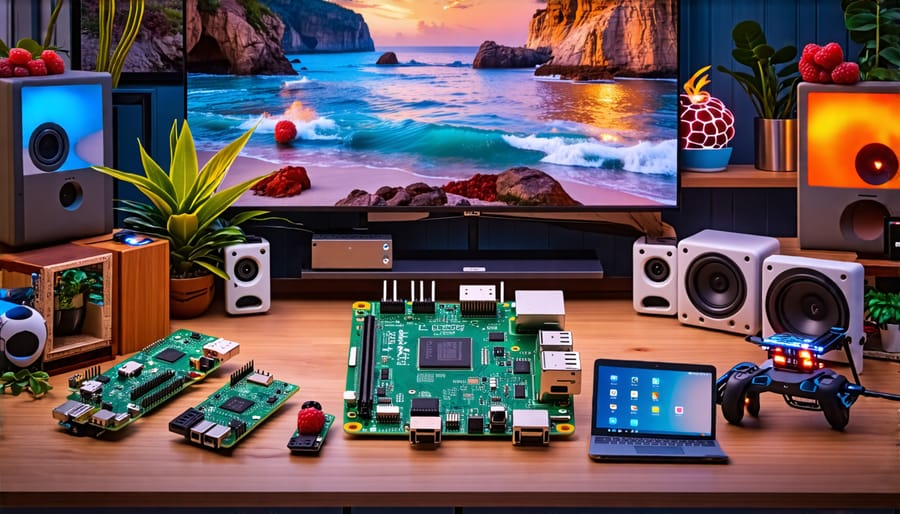Discover the world of possibilities with Raspberry Pi – an affordable, credit card-sized computer that packs a punch. Whether you’re a tech enthusiast, hobbyist, or educator, Raspberry Pi offers a gateway to endless projects and innovations. From building your own media center to creating smart home devices, the different Raspberry Pi models cater to a wide range of needs and skill levels. With its user-friendly interface, extensive community support, and vast learning resources, Raspberry Pi empowers you to explore the realms of programming, electronics, and DIY projects. So, is Raspberry Pi worth it? Let’s dive in and uncover the compelling reasons why this tiny computer is a game-changer in the world of technology.
Affordable Price Point
One of the most attractive aspects of Raspberry Pi is its affordable price point. Starting at just $35 for the basic model, Raspberry Pi offers an incredibly cost-effective way to dive into the world of computing, programming, and electronics. Compared to traditional desktop computers or laptops, which can cost hundreds or even thousands of dollars, Raspberry Pi provides a low-cost entry point for those looking to explore technology without breaking the bank.
This affordability makes Raspberry Pi an excellent choice for students, hobbyists, and anyone interested in learning about computer science and programming. The low cost also allows users to purchase multiple units for various projects or to build cost-effective solutions for home automation, media centers, or other applications.
Despite its low price, Raspberry Pi packs a punch in terms of features and performance. With a powerful processor, RAM, and GPU, it can handle a wide range of tasks, from basic web browsing and word processing to more advanced projects like building robots or creating smart home devices. This combination of affordability and functionality makes Raspberry Pi a highly appealing option for those looking to get started with computing and electronics without investing a significant amount of money upfront.


Versatile Functionality
Home Projects
Raspberry Pi’s versatility makes it an excellent choice for various home projects. One popular application is home automation, where you can use a Raspberry Pi to control smart devices, monitor energy consumption, or even create a solar-powered Raspberry Pi system for off-grid solutions. Another common use is building a media center using software like Kodi or Plex, allowing you to stream movies, TV shows, and music to your home entertainment system. You can also set up a Raspberry Pi as a network-attached storage (NAS) device for centralized file storage and backup. With its low power consumption and small form factor, a Raspberry Pi is well-suited for always-on applications like a personal web server, ad-blocking DNS server, or VPN gateway. These projects not only provide practical benefits but also offer valuable learning experiences in electronics, programming, and networking.
Education and Learning
The Raspberry Pi is a powerful educational tool for teaching coding and computer science concepts. Its low cost and user-friendly interface make it accessible to students of all ages and skill levels. Many schools and educational programs use Raspberry Pi to teach robotics, programming, and electronics through hands-on projects and experiments. The Pi’s versatility allows educators to create engaging lessons that cover topics like Python programming, web development, and IoT applications. With a vast array of online resources, tutorials, and community support, the Raspberry Pi provides an ideal platform for students to explore the world of computer science and develop valuable skills for the future.
Thriving Community and Resources
The Raspberry Pi community is a thriving, globally-connected network of enthusiasts, hobbyists, and educators who share a passion for innovation and learning. This vibrant community offers an incredible wealth of resources, support, and inspiration for anyone interested in exploring the potential of Raspberry Pi.
Online forums, such as the official Raspberry Pi forums and Reddit’s r/raspberry_pi subreddit, provide a platform for users to ask questions, share their projects, and collaborate with like-minded individuals. These communities are known for their friendly and helpful atmosphere, making them an excellent resource for beginners and experienced users alike.
In addition to community support, there is an abundance of online resources available for learning about and working with Raspberry Pi. The official Raspberry Pi website offers comprehensive documentation, tutorials, and project ideas, while platforms like YouTube and Instructables host countless videos and step-by-step guides covering a wide range of topics and skill levels.
Whether you’re looking for help with a specific project, seeking inspiration for your next creation, or simply wanting to connect with other Raspberry Pi enthusiasts, the community and resources available online make it easy to find the support and guidance you need. This strong sense of community and access to a wealth of knowledge further enhances the value of investing in a Raspberry Pi.

Opportunity for Skill Development
One of the most significant benefits of working with a Raspberry Pi is the opportunity for skill development. By engaging in Raspberry Pi projects, users can gain hands-on experience with programming languages like Python, as well as learn about electronics, circuitry, and hardware interfacing. These skills are highly valuable in today’s tech-driven world and can open doors to exciting career opportunities or personal growth.
Raspberry Pi projects often involve problem-solving and critical thinking, which help users develop a logical and systematic approach to tackling challenges. As users progress through projects of increasing complexity, they naturally enhance their computational thinking abilities and gain confidence in their technical skills.
Moreover, the Raspberry Pi community is known for its supportive and collaborative nature. Beginners can find numerous tutorials, forums, and resources to guide them through their learning journey. This community-driven approach not only makes skill acquisition more accessible but also fosters a sense of camaraderie and encourages users to share their knowledge and experiences with others.
Whether you’re a student looking to explore the world of technology, a hobbyist seeking to expand your skillset, or an educator aiming to inspire the next generation of innovators, the Raspberry Pi provides an excellent platform for skill development. By embracing the learning opportunities offered by this versatile single-board computer, users can equip themselves with the knowledge and expertise needed to thrive in an increasingly digital world.
Compact and Portable
One of the standout features of the Raspberry Pi is its compact size, making it incredibly portable and versatile. Measuring just 85.6mm × 56.5mm × 17mm, the Raspberry Pi 4 Model B is about the size of a credit card, allowing it to fit easily into your pocket or a small carrying case. This portability opens up a world of possibilities for projects on the go, such as mobile gaming systems, portable media centers, or even compact web servers. The Raspberry Pi’s small footprint also makes it an excellent choice for embedding into larger projects or devices, such as smart home controllers or robotics applications. With its low power consumption and ability to run on battery power, the Raspberry Pi is perfect for creating portable projects that can be used anywhere, without the need for a bulky computer or constant access to a power outlet.
Expandability with Add-Ons
One of the most exciting aspects of Raspberry Pi is its expandability through a wide range of add-on boards and accessories, known as HATs (Hardware Attached on Top). These add-ons enable you to extend the functionality of your Raspberry Pi, turning it into a versatile tool for various projects. Whether you want to create a retro gaming console, build a smart home hub, or experiment with robotics, there’s likely an add-on board that can help you achieve your goals. Some popular add-ons include camera modules, touchscreens, motor controllers, and sensor boards. With the ability to stack multiple HATs on top of your Raspberry Pi, the possibilities for customization and innovation are virtually endless. This expandability is one of the key factors that make Raspberry Pi an attractive choice for hobbyists, educators, and professionals alike, as it allows you to tailor your device to suit your specific needs and interests.
Conclusion
In conclusion, the Raspberry Pi is an excellent investment for most people, especially those interested in learning about computing, programming, and electronics. Its affordability, versatility, and extensive community support make it an ideal platform for exploring new ideas and developing valuable skills. Whether you’re a beginner looking to learn the basics or an experienced developer seeking to create innovative projects, the Raspberry Pi offers a world of possibilities.
With its low cost and high functionality, the Raspberry Pi provides an accessible entry point into the world of computer science and engineering. Its ability to serve as a desktop computer, media center, or IoT device demonstrates its adaptability to a wide range of applications. Moreover, the vibrant Raspberry Pi community ensures that users can find inspiration, guidance, and resources to support their learning journey.
While the Raspberry Pi may have some limitations compared to more powerful computers, its benefits far outweigh its drawbacks for most users. By investing in a Raspberry Pi, you open the door to a wealth of learning opportunities, creative projects, and potential career paths. Whether you’re looking to enhance your skill set, explore new hobbies, or inspire the next generation of tech enthusiasts, the Raspberry Pi is undoubtedly worth the investment.


